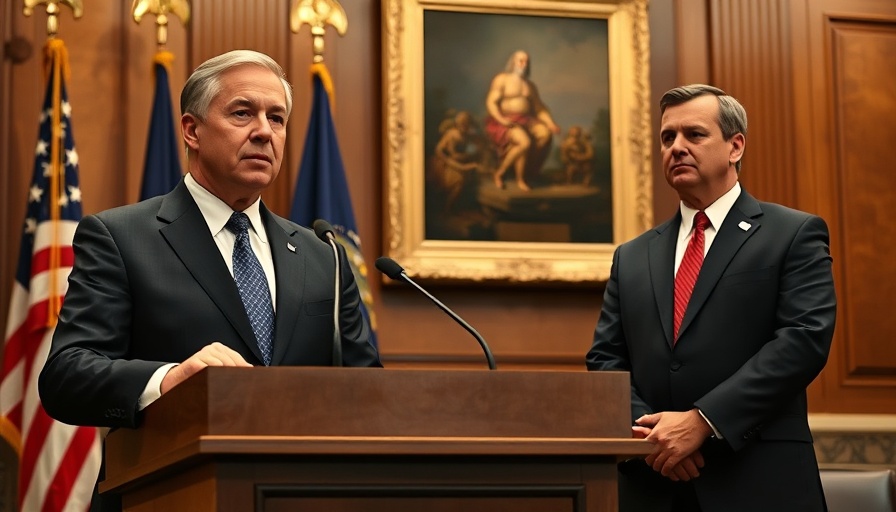
OpenAI's Demand for Copyrighted Data: A Call for Change
In a bold move, OpenAI is advocating for a shift in U.S. copyright policy concerning artificial intelligence (AI) training. The technology firm, known for its innovative ChatGPT, is pushing the federal government to permit AI developers to utilize copyrighted materials without the burdens of restrictive regulations. OpenAI argues that this change is crucial not only for maintaining America’s competitive edge in AI development but also for fostering a landscape where innovation can thrive.
The Rationale Behind OpenAI's Push
OpenAI’s CEO, Sam Altman, referenced the increasingly competitive nature of AI advancements as a race, particularly against countries like China. The firm highlighted that overly burdensome state laws impede American companies, creating a regulatory environment that synchronizes poorly with the fast-paced tech landscape. OpenAI emphasizes that removing these constraints will allow developers to harness a broader pool of data for training their models, ultimately leading to enhanced productivity and innovation across the sector.
The Controversy Over Copyright
Despite OpenAI’s assertions that their training methods do not replicate original works but rather learn from them, the stance has not come without significant backlash. Legal actions have emerged from several news organizations and content creators who allege that their works have been appropriated without consent. Notably, lawsuits from well-known publishers, including The New York Times and visual artists, underscore a growing unease within the creative community regarding AI's impact on intellectual property rights.
Unlocking Fair Use: A Balancing Act
OpenAI’s proposal includes advocating for a redefinition of the “fair use” doctrine, which would formally recognize AI’s right to learn from copyrighted content. They argue that establishing clearer legislative frameworks could protect artists while still allowing AI to develop in robust ways. OpenAI believes that a recalibrated understanding of fair use is imperative for fostering a sustainable balance between respecting creators’ rights and encouraging technological progress, affirming that a vibrant AI sector can coexist with strong copyright protections.
Possible Implications for the U.S. AI Landscape
The stakes involved in this debate extend beyond copyright law and strike at the heart of the broader questions concerning data privacy and the societal impact of AI technology. If OpenAI’s proposal were to be adopted, the U.S. could position itself as a leader in AI innovation, potentially drawing greater investments in technology and fostering a wealth of AI applications. However, the challenge remains—how can this innovation occur without infringing on the rights of individual creators whose content powers AI advancements? This pivotal moment in AI governance could redefine the interactions between technology companies and content creators.
Future Predictions and Trends in AI Regulation
Looking ahead, the ongoing discussions around AI and copyright laws will likely influence upcoming legislation significantly. As the U.S. government evaluates OpenAI's recommendations, AI professionals and artists alike will be closely monitoring the outcomes, with hopes that a fair compromise can be established. Analysts predict a trend towards more nuanced regulations that balance innovation with intellectual property rights, which could further establish the U.S. as an incubator for technological advancements.
The Path Forward: What Can Be Done?
The outcome of these debates could shape the future of AI in America, inviting industry leaders, policymakers, and creatives to engage in constructive dialogues regarding the use of copyrighted material. To safeguard their interests and influence the legislative process, artists and content creators may need to advocate for clearer protections while remaining open to collaborative innovations with technology developers. Ultimately, the resolution of these issues will determine the ethical and operational landscape of future AI developments.
 Add Row
Add Row  Add
Add 




 Add Row
Add Row  Add
Add 

Write A Comment